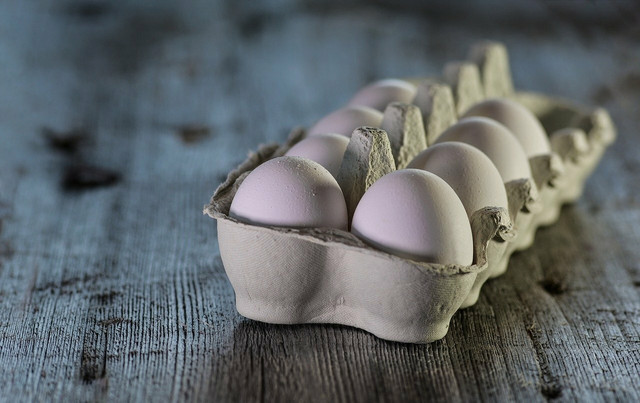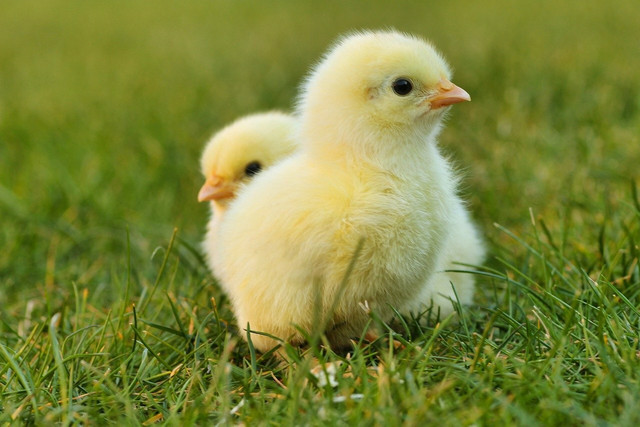While the storage of eggs may seem like a no-brainer, it’s important to use careful practices in the way you keep your eggs to reduce the risk of contracting salmonella. Read on to find out why you might have been storing your eggs all wrong.
Those of us who have grown up or spent most of our lives in the States are probably accustomed to the requirement that eggs are always refrigerated. However, this differs from many regions of the world where the opposite is the norm. In the US, eggs can always be found stored refrigerated near the dairy section and around other perishables. The majority of the world, contrarily, keeps their eggs at room temperature.
The reason for these differences is rooted in attempts to control salmonella outbreaks from contaminated eggs. The US Department of Agriculture (USDA) requires eggs sold for consumption to be washed, processed, then refrigerated before they enter a commercial location. Many countries worldwide require the opposite of their egg producers; that eggs not be washed or refrigerated at all. While neither method of egg processing is foolproof, both systems reduce rates of salmonella outbreaks.
In the past, salmonella, a bacteria that can cause food-borne illness or a sort of food poisoning, was a serious concern in causing outbreaks of this quite serious and uncomfortable illness. This was due to a lack of understanding of how the bacteria-infected individuals and how it was spread from chicken to egg. In the last half-century, with better scientific research and tools, countries have since been able to implement improved techniques for the safer distribution and consumption of eggs.
How to Store Eggs the Right Way

The practice of washing eggs used in the US removes a thin, protective layer from the egg called a cuticle. This natural protective coating helps keep bacteria outside the egg. Without the cuticle, an egg is more vulnerable to harboring potentially dangerous bacteria. The Federal Department of Agriculture (FDA) therefore requires eggs to be kept at or below 45 degrees Fahrenheit to inhibit the spread of bacteria.
Storing Fresh Eggs
To best store fresh eggs, they should be kept in the refrigerator below 45 degrees and above 32 degrees Fahrenheit. Eggs are best kept near the back of the fridge on a shelf, not in the door where temperatures can fluctuate.
A benefit to storing eggs in the refrigerator is that their shelf life increases to about 45 days whereas unrefrigerated eggs only last about 21 days.
Storing Boiled Eggs
The FDA recommends eating boiled eggs stored in the fridge within one week of cooking.
Freezing Eggs
Eggs can also be stored frozen for up to a year. Eggs should not be frozen in their shells. Instead, to freeze eggs, crack them and beat the yolks and white together. If you prefer, egg whites can also be stored frozen by themselves.
How to Store Farm Fresh Eggs



If you have access to fresh, unwashed eggs, these can be stored outside the refrigerator at room temperature for up to 21 days. However, no matter if your eggs have been washed or not, or if they are local or store-bought, they will last longer in the refrigerator.
Additionally, eggs will taste better for a longer time if stored in the refrigerator. Because they age much faster at room temperature, this often causes the egg whites to thin, the yolk to flatten and increases the risk of bacteria entering the egg.
If you choose to wash your eggs immediately upon collecting them or when you first get them from a local source, make sure to refrigerate the eggs immediately.
Reducing Egg Consumption



Unfortunately, chickens that produce eggs often live in poor conditions where their cage is overcrowded, leaving them no room to walk or spread their wings, female chicks are debeaked in the first days of their lives, among other cruel practices. Egg production is also correlated to water and soil contamination.
Without going into too much detail on the often overwhelmingly sad statistics on egg production and the welfare of animals, we recommend limiting egg consumption and sourcing eggs from organic and humane coops and farms. After all, eggs taste best from well-treated chickens.
Read More:
- Vegan Egg Substitute: 6 Ideas for Vegan Egg Replacers
- 4 Easy Egg Tests: How to Tell If Eggs Are Good or Bad
- Cracking the Secret to the Perfect Hard or Soft Boiled Egg
Do you like this post?







